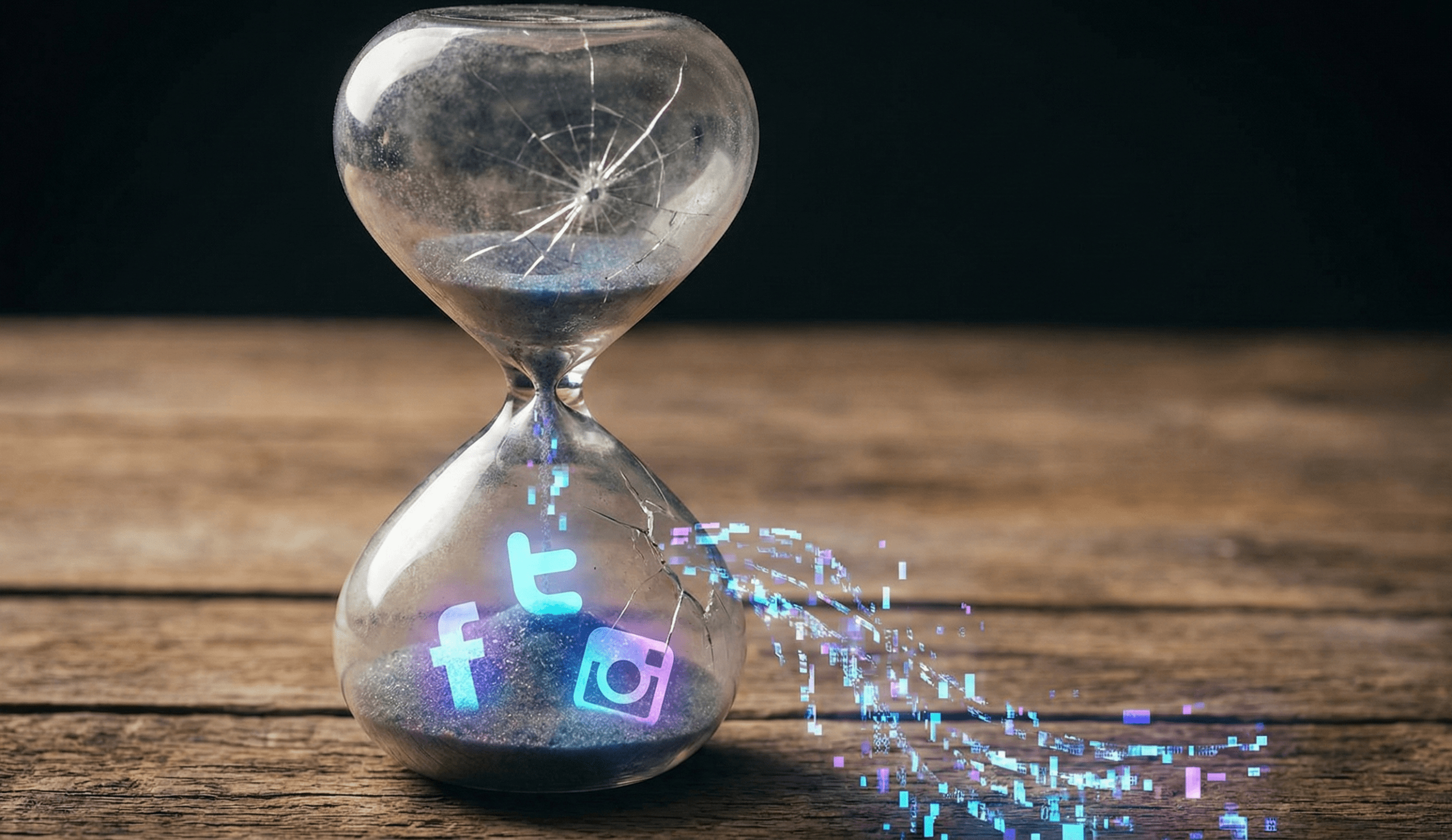Hey there! Welcome to a deep dive into something big happening in the world of tech and law. I’m Pankaj Raval, founder of Carbon Law Group, and today we’re talking about OpenAI. You’ve probably heard of them, haven’t you? The folks behind ChatGPT and those cutting-edge AI models that seem to be everywhere. Well, they’re in hot water right now. A dozen copyright lawsuits have been consolidated in the Southern District of New York, and it’s creating waves. This isn’t just tech gossip or a passing headline. It’s a wake-up call for businesses everywhere, from startups to established firms. Stick with me, and let’s unpack what this means for you, why it matters, and how Carbon Law Group can step in to help. Ready? Let’s jump in!

The Big Picture: What’s Happening with OpenAI?
Let’s start with the basics to set the stage. OpenAI, the innovative company behind some of the most advanced AI tools like ChatGPT, is facing a legal storm. We’re talking about a dozen copyright lawsuits all rolled into one massive case in the Southern District of New York. That’s a significant number of legal challenges aimed at one organization, isn’t it? Why is this happening? Because creators, publishers, and even big names like The New York Times are claiming OpenAI used their work without permission to train its AI models. It’s a bold accusation that’s got everyone talking.
Think about it for a moment. These lawsuits involve a wide range of players. You’ve got authors like John Grisham and Sarah Silverman, who say their books were used without consent. Then there are news outlets like The New York Times, alleging millions of their articles were fed into the system. Even music companies are joining the fray, arguing their lyrics were scooped up without a license. Now, instead of fighting these battles separately across different courts, a judge has decided to consolidate them. That means all the pre-trial work discovery, motions, and more is happening under one roof. It’s a streamlined process, but it also amps up the pressure on OpenAI. The assigned judge, Sidney H. Stein, has a history of ruling against the company in similar IP cases, which could make this an uphill battle.
This isn’t just about OpenAI, though. It’s a signal to every business out there using AI or creating content. Intellectual property is in the spotlight, and the outcomes of this case could reshape how you operate, innovate, or protect your assets. Curious about how this might touch your company? Let’s dig deeper into the details and see what’s at stake.
Takeaway: OpenAI’s legal battle highlights IP risks for businesses using AI. Stay informed to protect yourself and your interests.
Why Consolidation Matters: A Game-Changer for the Case
Okay, let’s break this down a bit more. Why does consolidating these lawsuits matter so much? Imagine you’re juggling a dozen different arguments in different courtrooms. It’s chaotic, overwhelming, and hard to keep track of, right? Now picture them all brought together under one judge in New York. That’s the power of consolidation. The U.S. Judicial Panel on Multidistrict Litigation stepped in to combine these cases, arguing it’ll make the process more efficient. One judge coordinating discovery, dispositive motions, and other pre-trial steps? It saves time, reduces duplication, and keeps everything moving forward smoothly.
But here’s the twist that adds some intrigue. This consolidation isn’t just about convenience or saving court resources. It centralizes the pressure on OpenAI in a big way. With all these claims authors, publishers, musicians in one place, the company faces a united front that’s harder to defend against. Discovery is a key part of this. It means lawyers will dig deep into how OpenAI trained its models. Did they use copyrighted books, articles, or songs without permission? That’s the million-dollar question. And dispositive motions? Those could determine if the case heads to a full trial or gets dismissed early. The outcome of these steps will shape the entire legal battle.
The judge overseeing this is Sidney H. Stein, and his involvement adds another layer of interest. He’s no stranger to these disputes, having ruled against OpenAI in past cases. His decisions suggest he’s willing to let plaintiffs like The New York Times push forward with their claims, especially when they provide solid evidence. For businesses watching this unfold, it’s a clear reminder. Intellectual property protection isn’t just a nice-to-have anymore it’s a must-have in today’s AI-driven world.
Let’s expand on that a bit. Consolidation also means consistent rulings across the board. Without it, different courts might interpret copyright law in conflicting ways, creating a patchwork of decisions that would confuse everyone. Now, one judge’s perspective will set the tone. That consistency could establish a legal precedent, influencing how AI companies, content creators, and businesses like yours interact for years to come. It’s a high-stakes game, and the stakes are rising with every hearing. This could be a defining moment for the tech industry, and you’ll want to be prepared for the fallout.
Takeaway: Consolidation raises the stakes for OpenAI and sets a potential IP precedent for your business to navigate.
The Heart of the Issue: Copyright Infringement Claims
So, what’s driving all this legal action? Let’s get to the heart of the matter. These lawsuits hinge on copyright infringement. The plaintiffs authors, publishers, musicians claim OpenAI used their work to train its large language models without consent or fair compensation. That’s a bold move, isn’t it, to take on a tech giant like this?
Take The New York Times as a prime example. They sued OpenAI, alleging that millions of their articles were fed into the system to power ChatGPT. They’ve got evidence, too, showing their content appearing in AI outputs. Other cases involve writers like Ta-Nehisi Coates and Sarah Silverman, who argue their books and unique writing styles were mimicked without permission. Even music companies are stepping up, saying their lyrics were used without a proper license. The common thread here is that OpenAI’s AI learned from copyrighted material, and now it’s producing content that looks suspiciously close to the originals.
OpenAI’s defense rests on “fair use,” a legal doctrine that allows limited use of copyrighted material without permission, typically for purposes like research or education. They argue their models transform data into something new, not just replicate it. It’s a clever stance, but the plaintiffs aren’t convinced. They’ve pointed to specific instances where ChatGPT reproduced articles word-for-word or echoed an author’s voice too closely. Judge Stein has already allowed some of these claims to move forward, finding the examples compelling enough to warrant further investigation. That’s a sign this case isn’t going away quietly.
For businesses, this is a wake-up call with real implications. If you’re using AI tools in your operations, are you sure they’re not pulling from protected content? Could you be liable if your AI generates something that infringes on someone else’s work? Or if you’re a creator yourself, are your books, articles, or songs safe from being used this way without your knowledge? The line between innovation and infringement is blurry right now, and this case might draw that line more clearly. Let’s explore how this could play out and what it means for your future.
Takeaway: Copyright infringement claims against OpenAI highlight risks for AI users and content creators alike, urging proactive protection.
The Judge’s Role: Why Sidney H. Stein Matters
Let’s talk about the man in the middle who could tip the scales. Judge Sidney H. Stein is calling the shots here, and his past decisions are raising eyebrows among legal watchers. He’s already ruled in favor of plaintiffs like The New York Times in related cases, allowing their claims to move forward. That’s a significant detail, isn’t it?
In one notable ruling, Stein rejected OpenAI’s motion to dismiss parts of The New York Times lawsuit. Why did he do that? The newspaper provided over 100 pages of examples, showing their articles popping up in ChatGPT outputs. He wasn’t convinced by OpenAI’s argument that some claims were too old to pursue, stating that plaintiffs couldn’t have known about the infringement earlier. That decision gave the green light for a deeper investigation, and it suggests he’s open to holding OpenAI accountable if the evidence stacks up.
This track record matters a lot. If Stein leans this way again in the consolidated case, OpenAI could face a tough road ahead. Discovery might uncover more instances of unauthorized use, and dispositive motions could favor the plaintiffs, pushing the case toward trial. For businesses like yours, this is a cue to pay attention. A judge with this perspective could set a stringent standard for AI companies, impacting how you deploy technology or safeguard your own intellectual property. It’s a development worth watching closely.
Let’s dive deeper into his approach. Stein seems to strike a balance between fostering innovation and protecting creator rights. He’s not shutting down the case outright, which shows he’s considering the nuances of fair use and AI development. But his willingness to let claims proceed signals that OpenAI’s fair use defense might not be enough on its own. This could push tech firms to overhaul their data practices, perhaps requiring clearer permissions or payments to content owners. For you, it’s an opportunity to get ahead of the curve with robust IP strategies, ensuring you’re not caught off guard by similar legal shifts.
Takeaway: Judge Stein’s rulings could shape IP law, affecting how businesses use AI and protect their content in the long term.
Risks and Opportunities for Businesses
Alright, let’s bring this home to you. How does this OpenAI case affect your business? Whether you’re using AI to streamline operations or creating content to build your brand, this litigation brings both risks and opportunities that you can’t ignore.
First, let’s talk about the risks. If OpenAI loses this case, it could set a legal precedent that training AI on copyrighted material is infringement. That’s a potential headache for any business using tools like ChatGPT or similar technologies. Are you liable if your AI generates content that infringes on someone else’s copyright? It’s possible. You might face lawsuits, fines, or the need to audit your entire tech stack to ensure compliance. For content creators, it’s a different angle. A win for the plaintiffs could protect your work from unauthorized use, but it might also slow down AI innovations you rely on for marketing or product development. It’s a trade-off to consider.
Now, let’s flip to the opportunities. This case shines a spotlight on the critical need for intellectual property protection. If you’re a business, it’s a chance to tighten your legal defenses before trouble hits. Patent your unique technology. Trademark your brand to stand out. Copyright your written content or creative works. At Carbon Law Group, we’ve helped companies of all sizes navigate these challenges, from small startups to established corporations. A loss for OpenAI could also create new avenues. If AI firms start paying for content to avoid lawsuits, creators might see new revenue streams. Imagine licensing your articles, books, or music to tech giants and turning a potential threat into a profit center!
Let’s expand on that a bit more. The uncertainty around this case is creating a market for legal expertise. Businesses might rush to secure IP counsel to avoid pitfalls or capitalize on emerging trends. That’s where we come in at Carbon Law Group. We offer comprehensive IP audits to check how your AI usage aligns with copyright laws. We can draft licensing agreements if you want to monetize your content with tech companies. Plus, if this case pushes the industry toward paid content deals, we’re ready to negotiate terms that maximize your earnings. This litigation is a catalyst, and smart companies will act now to turn challenges into opportunities.
Takeaway: This litigation brings IP risks and opportunities. Partner with experts to stay ahead and thrive.
Real-World Impact: Stories from the Trenches
Let’s make this real with some examples that bring the stakes to life. Take a media client we worked with recently. They were growing concerned that their articles might be used by AI systems without permission, putting their intellectual property at risk. We stepped in, conducted a thorough IP audit, identified potential vulnerabilities, and crafted a strategy to monitor and protect their content moving forward. It gave them peace of mind and a plan to safeguard their assets.
Then there’s a tech startup we supported. They were using AI tools to enhance their customer service, but they weren’t sure about the legal implications. We reviewed their contracts, advised on compliance with copyright laws, and helped them adjust their practices to avoid potential infringement claims. That proactive move saved them from a costly legal battle down the road.
These aren’t just stories we made up. They’re real scenarios where Carbon Law Group made a difference. The OpenAI case could mirror these issues on a larger scale. If you’re a content creator, you might face similar threats to your work. If you’re an AI user, you could be next in line for scrutiny as the legal landscape evolves. We’ve seen it happen, and we’re equipped to guide you through it with confidence.
Let’s go even further with more examples. Imagine a small publisher we worked with who turned a potential lawsuit into a win. They licensed their archives to an AI firm after we negotiated favorable terms, transforming a risk into a steady revenue stream. Or consider a tech company we saved from a multimillion-dollar legal fight by spotting IP red flags early during a routine check. These stories illustrate the power of proactive legal support, especially in a shifting environment like the one OpenAI’s case is creating. Your business could benefit from the same kind of foresight and expertise.
Takeaway: Real cases prove the need for IP expertise. We’ve got your back to navigate these challenges.
How Carbon Law Group Can Help
Here’s where we shine and make a real impact. This OpenAI litigation is complex. Copyright law, AI ethics, fair use debates it’s a lot to wrap your head around, isn’t it? That’s why you need a partner who understands the ins and outs. Carbon Law Group turns these challenges into tailored solutions that work for you.
We conduct thorough IP audits to ensure your AI tools comply with copyright laws and minimize your risks. We draft and negotiate licensing agreements if you want to monetize your content by partnering with tech companies. We represent you in disputes, drawing on our extensive experience with similar intellectual property cases. Our team, led by me, Pankaj Raval, and including experts like Sahil Chaudry, knows this space inside and out. We’ve guided businesses through IP storms, from small startups taking their first steps to established firms planning their next big move. Let us handle the heavy lifting so you can focus on what you do best growing your company.
Think about it for a moment. Legal missteps can cost you millions in fines or lost opportunities. A single overlooked copyright issue could trigger a lawsuit that derails your progress. With Carbon Law Group by your side, you’re not just reacting to problems. You’re strategizing for success. We customize our approach to your unique needs, whether you’re a creator looking to protect your work or a tech user aiming to innovate safely. Our track record speaks for itself, with countless clients benefiting from our guidance, and we’re here to protect your future every step of the way.
Takeaway: Trust Carbon Law Group to navigate IP risks, seize opportunities, and secure your business’s future.
Your Next Step
Wow, what a journey we’ve been on! We’ve covered OpenAI’s consolidated copyright battle, the judge’s critical role, the infringement claims at the heart of it all, and what it means for your business. It’s a lot to take in, isn’t it? From the risks of using AI to the opportunities for protecting your content, this case is a game-changer.
But here’s the good news. You’ve got options to take control. If you use AI in your operations, conduct an audit to ensure compliance and avoid legal headaches. If you create content like articles, books, or music, secure your intellectual property with strong legal protections. Don’t wait for a lawsuit to force your hand. Partner with experts to stay ahead of the curve and turn potential threats into strengths.
Drop a comment below. Share your thoughts, ask a question, or tell us how this might affect your business. Planning to protect your company or explore new opportunities? Let’s talk about it. Visit carbonlg.com to learn more about how we can support you. Connect with me here or Sahil here. Let’s turn this legal spotlight into your advantage, starting today, and build a strategy that sets you up for success in this evolving landscape.
Connect with Us: https://carbonlg.com/about-us/#info
Website: carbonlg.com
Connect with Pankaj: https://www.linkedin.com/in/pankaj-raval/
Connect with Sahil: https://www.linkedin.com/in/sahil-chaudry-6047305/




